Jamal Al Qundus
TopicsRanksDC: Distance-based Topic Ranking applied on Two-Class Data
May 17, 2021



Abstract:In this paper, we introduce a novel approach named TopicsRanksDC for topics ranking based on the distance between two clusters that are generated by each topic. We assume that our data consists of text documents that are associated with two-classes. Our approach ranks each topic contained in these text documents by its significance for separating the two-classes. Firstly, the algorithm detects topics using Latent Dirichlet Allocation (LDA). The words defining each topic are represented as two clusters, where each one is associated with one of the classes. We compute four distance metrics, Single Linkage, Complete Linkage, Average Linkage and distance between the centroid. We compare the results of LDA topics and random topics. The results show that the rank for LDA topics is much higher than random topics. The results of TopicsRanksDC tool are promising for future work to enable search engines to suggest related topics.
* 10 pages, 5 figures
AI supported Topic Modeling using KNIME-Workflows
Apr 15, 2021



Abstract:Topic modeling algorithms traditionally model topics as list of weighted terms. These topic models can be used effectively to classify texts or to support text mining tasks such as text summarization or fact extraction. The general procedure relies on statistical analysis of term frequencies. The focus of this work is on the implementation of the knowledge-based topic modelling services in a KNIME workflow. A brief description and evaluation of the DBPedia-based enrichment approach and the comparative evaluation of enriched topic models will be outlined based on our previous work. DBpedia-Spotlight is used to identify entities in the input text and information from DBpedia is used to extend these entities. We provide a workflow developed in KNIME implementing this approach and perform a result comparison of topic modeling supported by knowledge base information to traditional LDA. This topic modeling approach allows semantic interpretation both by algorithms and by humans.
ROC: An Ontology for Country Responses towards COVID-19
Apr 15, 2021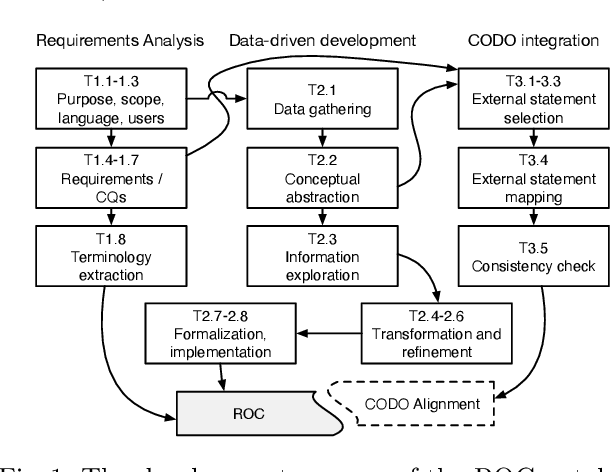
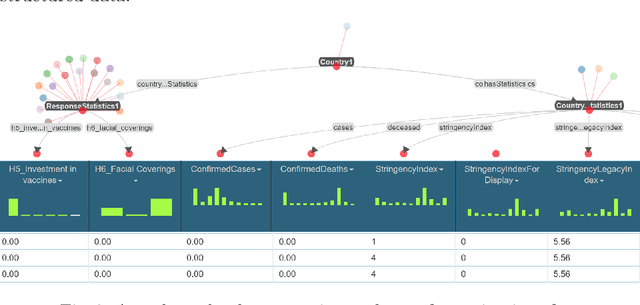

Abstract:The ROC ontology for country responses to COVID-19 provides a model for collecting, linking and sharing data on the COVID-19 pandemic. It follows semantic standardization (W3C standards RDF, OWL, SPARQL) for the representation of concepts and creation of vocabularies. ROC focuses on country measures and enables the integration of data from heterogeneous data sources. The proposed ontology is intended to facilitate statistical analysis to study and evaluate the effectiveness and side effects of government responses to COVID-19 in different countries. The ontology contains data collected by OxCGRT from publicly available information. This data has been compiled from information provided by ECDC for most countries, as well as from various repositories used to collect data on COVID-19.
* 10 pages, 3 figures
QURATOR: Innovative Technologies for Content and Data Curation
Apr 25, 2020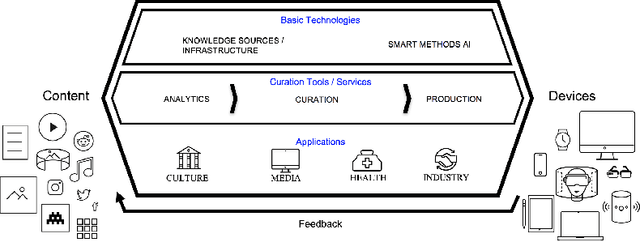
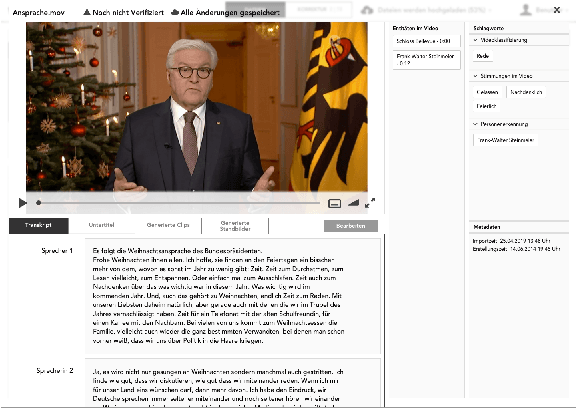
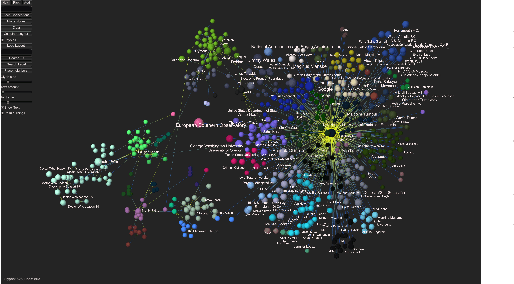
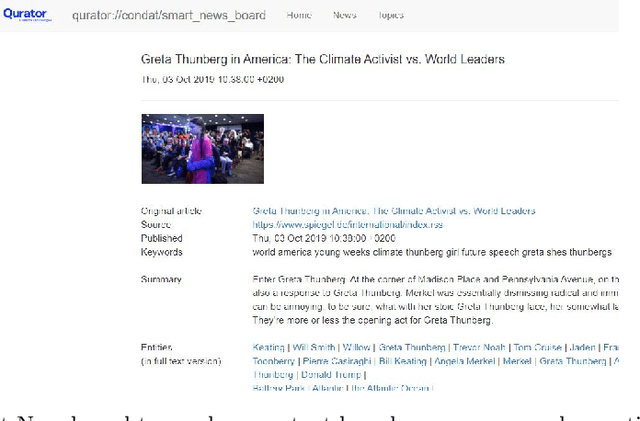
Abstract:In all domains and sectors, the demand for intelligent systems to support the processing and generation of digital content is rapidly increasing. The availability of vast amounts of content and the pressure to publish new content quickly and in rapid succession requires faster, more efficient and smarter processing and generation methods. With a consortium of ten partners from research and industry and a broad range of expertise in AI, Machine Learning and Language Technologies, the QURATOR project, funded by the German Federal Ministry of Education and Research, develops a sustainable and innovative technology platform that provides services to support knowledge workers in various industries to address the challenges they face when curating digital content. The project's vision and ambition is to establish an ecosystem for content curation technologies that significantly pushes the current state of the art and transforms its region, the metropolitan area Berlin-Brandenburg, into a global centre of excellence for curation technologies.
 Add to Chrome
Add to Chrome Add to Firefox
Add to Firefox Add to Edge
Add to Edge